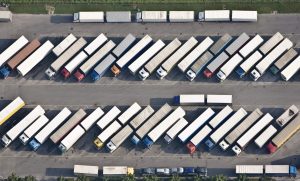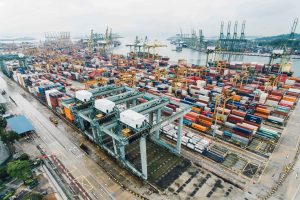What Is The Importance Of Transport and Logistics?

Transport and Logistics
Transport and Logistics have become an inevitable part of business life. Without it, there can be no industry. It refers to all transport activities, which involve moving materials and/or products from one location to another. The main activities covered are shipping, air transport, road transport, sea transport, trains, and automobiles. There are many sub-topics involved in transport and logistics.
Financial services
The world is a global village. Businesses are integrating the financial services and the services of the physical market into their product and service offerings, to improve their customer satisfaction and cut costs. At the same time, they are expanding their market share through technological advancement and marketing strategies. Logistics, therefore, plays an important role in both the supply chain industry as well as the economy as a whole.
Supply chain industry
The supply chain industry refers to the activities involved in moving raw materials from the production plants to the final consumer. In addition, the activities of the supply chain need to take into consideration environmental, health, and safety issues. The supply chain needs to consider the fact that it is not only about where you are in the supply chain but what’s between you and your customers. Logistics, therefore, has great strategic significance. For instance, transportation, warehousing, and offloading are essential for any large-scale business in the supply chain industry.
bonus veren siteler

Freight forwarding
Freight forwarding involves moving things from one location to another. There are two types of logistics: road freight and air transport. On the one hand, road freight involves the movement of goods by road as opposed to using rail transport or trucks. Air transport is when you move things by air. Both these methods have different sets of rules and regulations that you need to follow.
Distribution networks
The application of logistics in any industry is made possible by using big data. Big data is simply what it sounds like – information gathered from all sources and then used to make informed decisions. The transportation and distribution networks also have to account for the risks inherent in the process of moving things.
Transportation routes
One example is the shipping industry. All transport companies have been using big data to examine their processes. Standard shipping logisticians are tasked with understanding the entire supply chain and developing effective methods to monitor the flow of goods. Using big data, logistics can analyze factors such as transportation routes, terminal locations, fuel costs, and even weather conditions, all of which factor heavily on the reliability of the transport company and the quality of the products that are being shipped.

Inventory management
Using logistics in the transportation and distribution industry has led to major advancements in efficiency and improved customer service. With the introduction of e-commerce, transportation and distribution has become much more interactive and faster. E-commerce, by its very nature, requires the transportation and distribution companies to have a good e-commerce platform integrated with online inventory management and order tracking systems. If the inventory management systems can’t interact with the e-commerce platform, the end results can be disastrous.
Logistics software solution
In order to remain competitive and efficient, shipping process-oriented companies have had to invest heavily in their infrastructure and in training to ensure that they understand every aspect of their business and the role they play in the shipping process. This investment is Shipper corner paying off as logistics companies are able to provide better services and help clients maintain low prices than their competition. Ultimately, investing in a logistics software solution will improve your shipping process and increase your profits. The next time you find yourself in the midst of a cross-functional logistics project, you should ask yourself “what could logistics do for me?”